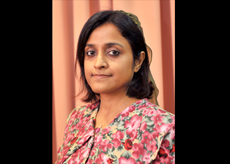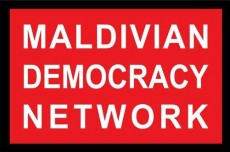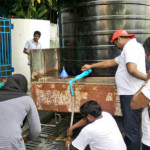State institutions have both celebrated the current progress in the protection of human rights in the Maldives, as well as expressing concern about certain violations and restrictions in the field.
A series have statements accompanied the 63rd International Human Rights Day – December 10.
With this year’s Human Rights Day aligning with the Human Rights Commission of the Maldives (HRCM)’s 10th Anniversary, the independent commission held an event on Tuesday night, attended by several cabinet ministers, alongside political and civil society actors.
“It is crucial to overcome obstacles in the protection of rights guaranteed to Maldivians through the constitution and the international treaties, and for all institutions to work justly and equitably to reach this goal,” said HRCM President Mariyam Azra at the event.
Furthermore, in a statement released on Tuesday, the HRCM president stated that while the commission is pleased that human rights has become a topic openly and often discussed over the past decade, there still remains much work that needs to be done in the country to adequately protect human rights.
“What leads to the violation of rights is the lack of respect for rights. The abuse of rights committed by those in high positions oftentimes as a show of power most often affects the most vulnerable persons who are already in need of special protection. That is to say, people who are sidelined by society itself,” the statement read.
While there are state institutions mandated to protect citizens from harm and to bring perpetrators to justice, Azra commented, “as it is humans working in these institutions, a culture of treating others in a manner you would wish yourselves to be treated needs to be better established”.
She also noted that, when intervening in the case of a 15 year old rape victim being charged with fornication and sentenced to 100 lashes by flogging, the commission realised the importance of interventions even at the court proceedings stage.
“When after we intervened, the High Court overruled the Juvenile Court’s sentence on the child, we realised the importance of intervention even at the stages of court hearings. Therefore, we have now planned to conduct further work in the field after seeking cooperation from the judiciary,” she revealed.
“President Yameen has an unwavering commitment to establish a consolidated democracy”
 Meanwhile, Minister of Foreign Affairs Dunya Maumoon stated that the Maldives has given “greater impetus and focus to strengthening our systems and institutions to better safeguard human rights and fundamental liberties” since former President Maumoon Abdul Gayoom began the introduction of democratic governance in the country in 2004.
Meanwhile, Minister of Foreign Affairs Dunya Maumoon stated that the Maldives has given “greater impetus and focus to strengthening our systems and institutions to better safeguard human rights and fundamental liberties” since former President Maumoon Abdul Gayoom began the introduction of democratic governance in the country in 2004.
While acknowledging that much work needs to be done to safeguard human rights in the country, Dunya stated, “I am pleased to reiterate the unwavering commitment of His Excellency President Abdulla Yameen Abdul Gayoom to continue the country’s journey, with greater vigour and determination, to its destination of a consolidated democracy.
She asserted that the government will focus on completing its human rights treaty reporting obligations and reducing the gaps that exist within the framework, among other related work.
She further spoke on the Maldives’ role in the UN Human Rights Council (UNHRC), emphasising among other points that the country had “always pledged to defend the Constitution, to strengthen our judiciary and independent institutions and to uphold the rule of law”.
“We have not minced our words in our calls to protect the rights of all Muslims around the world. We have stood up against Islamaphobia and risen to build the fallen bridges of tolerance and respect,” the statement read.
The minister pledged to continue the work through the country’s membership in the UNHRC and at the local level.
State must take initiative to provide justice to those who suffered HR violations: MDN
Local Human Rights NGO Maldivian Democracy Network (MDN) commended the current stability in the country, maintaining that it is the result of having an elected government in place after a politically turbulent period.
maintaining that it is the result of having an elected government in place after a politically turbulent period.
Thanking the Elections Commission for its work to defend the right to vote and the losing candidate Maldivian Democratic Party (MDP)’s Mohamed Nasheed and his supporters for their ready acceptance of electoral defeat, the NGO called on security forces and the general public to ensure that the stability in the country is maintained as a peaceful one by refraining from committing acts of violence or injustice against any persons.
“This organisation believes that it is a responsibility of the government to take the initiative to ensure justice for all those who have suffered different manners of abuse and HR violations in these past days,” the statement read.
“It is crucial that state institutions act in accordance with the recommendations put forth by the Commission of National Inquiry,the HRCM and the Police Integrity Commission after concluding investigations into the events of February 7 and 8, 2012. This will be the most important and initial step towards establishing justice,” it continued.
“It is also important to learn of the injustices against separate persons being committed by the judicial, political and social sectors currently, and to ascertain that they proceed in a just manner. We call on the government and concerned state authorities to ensure this.”






Talk of human rights is mostly about following UN slogans. Getting entangled in the messy NEOCOLONIAL tactics would NOT improve the human or whatever rights situation in Malives. It will only take the precious diplomatic resources away from much needed areas like country promotion for business and investment. And a RICH country in 5 years would be a better protector of human rights than a slogan chanting foreign service. The best way to ensure human rights is to take care of citizens. An honest gov need not need to make loud noises and headlines on human rights.
The foreign policy to focus on human rights would only entangle Maldives in controversies - as designed by dr shaheed. But the continuation of the policy seems like an attempt to fit the foreign policy to the minister as that's the only thing she knows. This is a bad approach for the country
As an observing tourist, I must say what valuable statements I just read:
While there are state institutions mandated to protect citizens from harm and to bring perpetrators to justice, Azra commented, “as it is humans working in these institutions, a culture of treating others in a manner you would wish yourselves to be treated needs to be better established”.
“It is also important to learn of the injustices against separate persons being committed by the judicial, political and social sectors currently, and to ascertain that they proceed in a just manner. We call on the government and concerned state authorities to ensure this.”
There are many brilliant individuals who are uncompromising in their stance for justice and equality. But their message is often not understood or received well by many people. Azra, Ibra or Velezinee will never has a strong influence over the general public.
Democracy and rule of law cannot be imposed. Sustained campaigns to educate the electorate is part of the process. Although it appears hopeless, this is as good as any a transition from autocracy of individuals to the chaotic governance through institutions.
@ peasant's advice is sensible and pragmatic.
Institutions cannot be relied to govern certain issues BECAUSE it is easier to corrupt a single institution as compared to many individuals. Think of supreme court. Did the SC facilitate rule of law or stamp on it?
You answer..